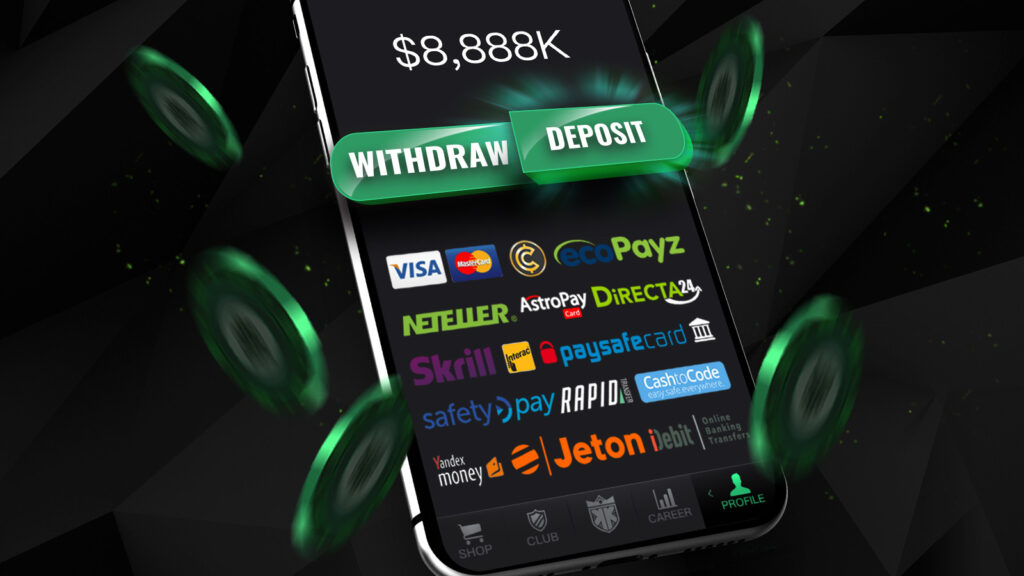In the last couple of years with the boom of televised poker, everyone’s paying more attention to poker than ever before. data+sgp One of the many aspects of televised poker is the ability to play for free, something you can’t do in the usual offline casino poker. By playing for free online, you’ll have the chance to try your game against any opponent in the world, whenever the mood strikes you. Of course, you have to remember that not all of the people offering free online poker are doing it in order to genuinely help you improve your game. togel singapore result Some are doing it just to get you interested in poker; others are doing it because they have a betting system which needs testing. Nevertheless, if you feel that your skills need improving, now is the time to take action and deal with your poker issues.
There are Brett Hull’s Easy Money Poker Strategy and Gus Hansen’s The Book of Bluffs, both of which provide you with the tools to be successful in poker. Take a look at them both, and consider where you think you can make the most profit in the long-term, and consider what you’ll do once you’ve done that.

Hull’s book is a relatively recent book, probably since 2000. He’s an active member of the No Limit Games Society, and has been battling with his own hands of cards for many years. I hesitate to recommend this book, as there are manyabsolutes in poker, but as far as big money and historic moments in poker history are concerned, this is the classic you’re looking for.
Gus Hansen’s book is newer, and while still fairly relevant, isn’t as juicy as some of the others. Generally, most of the big money players work backwards from the World Series of Poker: they win their seat, then they win their way into working up the ladder. singapura result Most of the time, they don’t win their first big game until their required minimum amount of time passes (how much time means something different for everyone). Hansen’s book is different in that he didn’t give up on his hands right away: in fact, he gave up his poker career hours before it was over. He spent years researching poker, and found a lot of what I’ve been talking about up until now.
While each of these books are definitely worth a read (there’s so many good books out there), if you’re looking for a “sure thing”, I’d probably look at throwing all the money out of the window right now. The best you can probably get are some moderate edges, and a whole lot of caution and careful reading to flesh out your skills. While the authors of these books sometimes cover lots of ground, sometimes only a couple of edges, as far as I’m concerned, are enough to start you on the right path.
And now, for some truisms of the internet poker scene.
All poker players lose … occasionally. Even the best poker players lose and can never win on a regular basis. Some of the best players in the world don’t even win their home games, much less their WSOPs. If this is such a truism, then poker would be such a sad game. Poker would be so easy to win, but only the very best could ever win, leaving most losers out in the cold.
If this is truism number 4, then the question is: what’s the best way to deal with it? Well, there are really only two ways to deal with it. You can deny it, and say “Well, if I lose my $5, I’ll just play online poker to try and win back my money.” That might work, but in the long run, you’d probably just lose more. Then there’s also the possibility of explicitly stating “I don’t want to play online poker,” and then playing it, but with a constant and massive dose of skepticism. The problem with playing poker online is that it can beHostedandversesites. When playing poker on the internet, you don’t have to worry aboutHosting. TightHosting is the way to go, and the problem with a pure Hosting situation is that you might lose a hand for some amount of money, but you can easily lose twice that amount in reputation damage. So although it’s easy to state that “I don’t want to play online poker,” for a lot of people, that also means “I want to play online poker.”
So what’s the answer? Well, I like to play online poker, but I don’t like to deny my wants and comfort. If I’m nervous about being 666-carded, then I shouldn’t be playing online poker. It’s just not healthy to feed bad habits at the table. The other part of this answer is a matter of personal preference. Some people are huge fans of live table poker, and get nervous if they’re at a casino.
